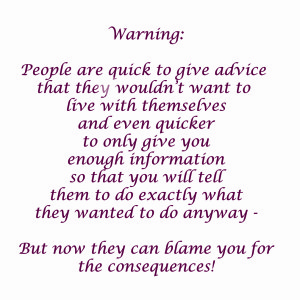Honor, Shame, Humility, and Destroying the Paradigm
 Sometimes when people start learning about and teaching honor and shame culture, they do it in a lopsided manner. They start teaching honor and shame as tantamount to societal perfection, or a virtue – but honor and shame often had nothing to do with concepts of right and wrong.
Sometimes when people start learning about and teaching honor and shame culture, they do it in a lopsided manner. They start teaching honor and shame as tantamount to societal perfection, or a virtue – but honor and shame often had nothing to do with concepts of right and wrong.
Honor and shame was more about maintaining the concept of the community “shall”s and “shall not”s, than it was about right and wrong. Sacrificing your newborn firstborn might be honorable, and refusing to do so might be shameful if the gods seemed to be angry. So although we see it as the underlying fabric of scriptural culture, it does not mean that it always ended up being for the best. King David had Uriah killed in order to protect his honor, when his own actions were dishonorable. King Saul tried to have David killed when David’s perceived honor outstripped his own. Honor and shame culture explains things that happen in scripture, but we are mistaken when we take it for a fix-all blueprint of modern culture – and especially when we pursue unrighteous honor and are offended by righteous shame. Shame can be honor in the eyes of God, and honor in the eyes of the world is sometimes tantamount to our disgrace in the eyes of the Father.
In fact, during the first century, the assemblies had to pull what I call a “Hanoi Hilton” in order to alter their cultural honor/shame paradigms. Let me explain that reference briefly:
During the Vietnam War, American POW’s were being subjected to intense torture by their captors. Now up to this point, it was considered a great dishonor in the military to break under torture – but the torture being administered was so terrible that the men who would break would be left with immense guilt and often no will left to live. Seeing that no one could hold out indefinitely, the prisoners developed an alternate code of honor and shame. Recognizing that everyone has a breaking point, the new code revolved around holding out as long as possible and giving as little information as possible. Surrendering information was inevitable, given the severity of torture, and so the shame of being broken only made it easier to be broken the next time around. Giving the POW’s something to take pride in gave them control over their own lives. Consequently, they were able to hold out longer under torture and maintained their will to live. In the aftermath of Vietnam, many of the former inmates of the Hanoi Hilton went on to live happy lives because of the cultural change they brought to the traditional military honor and shame codes.
During the first and second centuries, things were incredibly difficult for the believers in Yeshua (Jesus) for both Jews and grafted in former Gentiles. It was not honorable in the eyes of the established culture to maintain loyalty towards a man who had been executed in the most humiliating of methods. For the former Gentiles, there was no honor in being an Atheist (someone who was not polytheistic). Nothing about following Yeshua manifested respect because there was no difference between secular and religious life in the ancient world. There was nowhere for the believers to hide from the new found shame and social pressure. In fact, much of the epistles of Paul, and even the sayings of Yeshua Himself recognize this cultural change. Yeshua tells His followers that they will be subjected to great shame by the prevailing culture:
John 16:1-2 These things have I spoken unto you, that ye should not be offended. They shall put you out of the synagogues: yea, the time cometh, that whosoever killeth you will think that he doeth God service.
Yeshua says right here that we should not be offended when we are rejected – even by the believing community. Although it is shameful in the eyes of society, there is more honor to be had in remaining loyal to Him (I will detail why later).
Matt 10:25 It is enough for the disciple that he be as his master, and the servant as his lord. If they have called the master of the house Beelzebub, how much more shall they call them of his household?
And there would be insinuations of sorcery and insults but still our call is to loyalty, and loyalty calls for a great deal of humility.
Written to the first century congregations, the epistles speak at great length about the concept of shame – preaching a new system of honor based on loyalty to the Savior, by doing His commandments and not denying His Name. In fact, the Corinthians needed a lot of work, because they still were doing things according to their old ways – behaving very shamefully in the eyes of God but not necessarily in the eyes of the world around them. The church at Colossae was suffering terribly from worldly influences:
Col 2:16 Let no (pagan – referring to the worldly philosophers in verse 8) man therefore judge you in meat, or in drink, or in respect of an holy day, or of the new moon, or of the sabbath days
The believers were being actively shamed about their new lifestyle – they were no longer celebrating the pagan festivals of their families, or going to the cultic new moon celebrations. They were now keeping the Sabbath, and celebrating festivals and observing new moons according to scripture. If you think that you have it bad for changing denominations or for stopping the observance of Christmas and Easter – you really ought to study what was happening in these Gentile cities; they couldn’t even buy and sell without offering incense to the marketplace gods! The fire from their homes had to either come from the pagan city hearth or they had to make it themselves. They had to actively reject the honor and shame code of their world and develop a new one based solely on an obedience and loyalty towards the one true God.
But what made this paradigm shift possible in first century Greco-Roman culture? It was the understanding of Patron/Client relationships.
I have taught this before, so I will just review it briefly. In the ancient world, if you didn’t have something you needed, the only way to get it was to go to someone of a higher status who could provide it. Say I am a playwright, and I want to write a glorious new play about the Emperor, but I’m starving and I don’t have the necessary writings supplies. I would go to a local Patron and ask for his assistance. If he gave me what I needed, it was my job to repay him with gratitude – a lot of gratitude. Not only would I write and produce the play in his honor, increasing his reputation, but I would be sure to tell everyone what a generous benefactor he was. In the ancient world, reputation was more important than money and so wealthy men delighted in spending their wealth towards the accumulation of honor. If I did a good enough job elevating his honor, he would probably be thrilled to help me again when I have a need. The down side to this was that one was never to accept any sort of help from anyone they would not be willing to be loyal to – even to the point of the loss of one’s honor if their Patron came into trouble or disgrace. One was required to be willing to endure slander and even exile on behalf of their benefactor – that was the measure of gratitude expected. Humility was required in this sort of relationship – because you had to be willing to gladly lose your honor in defense of your benefactor. This relationship was called charis, our NT Greek word translated as “grace.” So when Paul wrote about grace, everyone knew what he was talking about – a reciprocal relationship based on both generosity and gratitude. The initial gift was indeed free, but if there was no gratitude, no loyalty, no obedience – the flow of grace would be cut off. Freely you received, and freely you were required to give.
Now, what if you wanted something that your patron could not provide? You had two choices – go to his enemy or ask your Patron to introduce you to another Patron who could provide you with what you need. Well, going to the enemy of your Patron was the epitome of ingratitude and disloyalty – it is, in effect, having two masters. It isn’t going to work. So, you go to your Patron, and he introduces you to someone else who can get you what you need. Then, in the name of your Patron, you would ask the new Patron for what you need. Because of the relationship between the two Patrons – your need would be satisfied “in the name of” your first Patron – called a mediator in this case. This should start sounding really familiar to Bible readers.
Paul stressed to the first century believers the utmost importance of, having received our salvation, being loyal to Messiah to the death. They were expected to endure the shame, loss, persecution, hardship, hatred and sometimes even death in gratitude for the gift of eternal life. Paul rightly portrayed Yeshua as our mediator, our Patron who gives us access to the Father as our greater Patron. This is why no one has access to the Father except through the Son.
I Tim 2:5 For there is one God, and one mediator between God and men, the man Christ Jesus
John 14:6 Jesus saith unto him, I am the way, the truth, and the life: no man cometh unto the Father, but by me
It takes a great deal of humility to follow Yeshua, to accept Him as our only way to the Father’s blessings. We must embrace shame, persecution, insults, and hatred – because He is shamed, persecuted, insulted and hated. Yeshua is our Patron, and we should in no way accept His gift of salvation unless we are willing to endure whatever is directed at Him. We have no cause to demand that the world that rejects Him, accept us. We have no right to desire honor on the world’s terms. If someone is His enemy then by the laws of grace, they are not my friend. I will still treat them kindly, but we have no part with each other – if they actively reject Yeshua, then they actively reject me. They can’t have me without Him.
Yeshua is my Patron, He is also my Mediator. He deserves my loyalty – no matter what it costs, and if I don’t like it then I need to walk away and choose what master I’d rather serve.
Spanish version here


